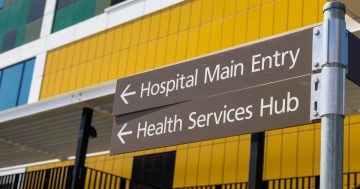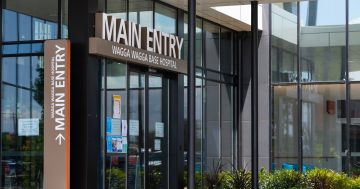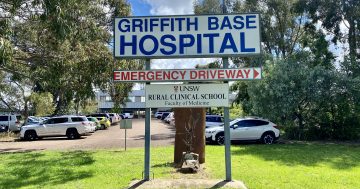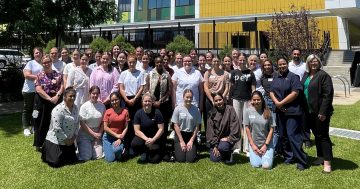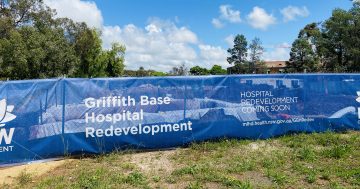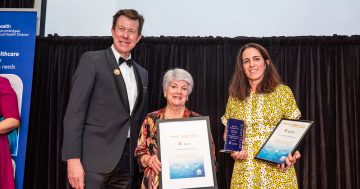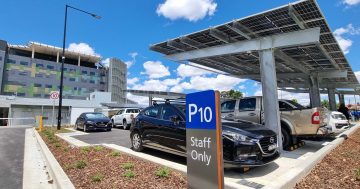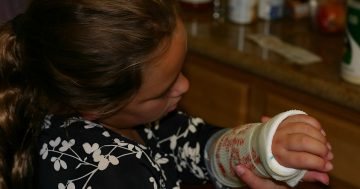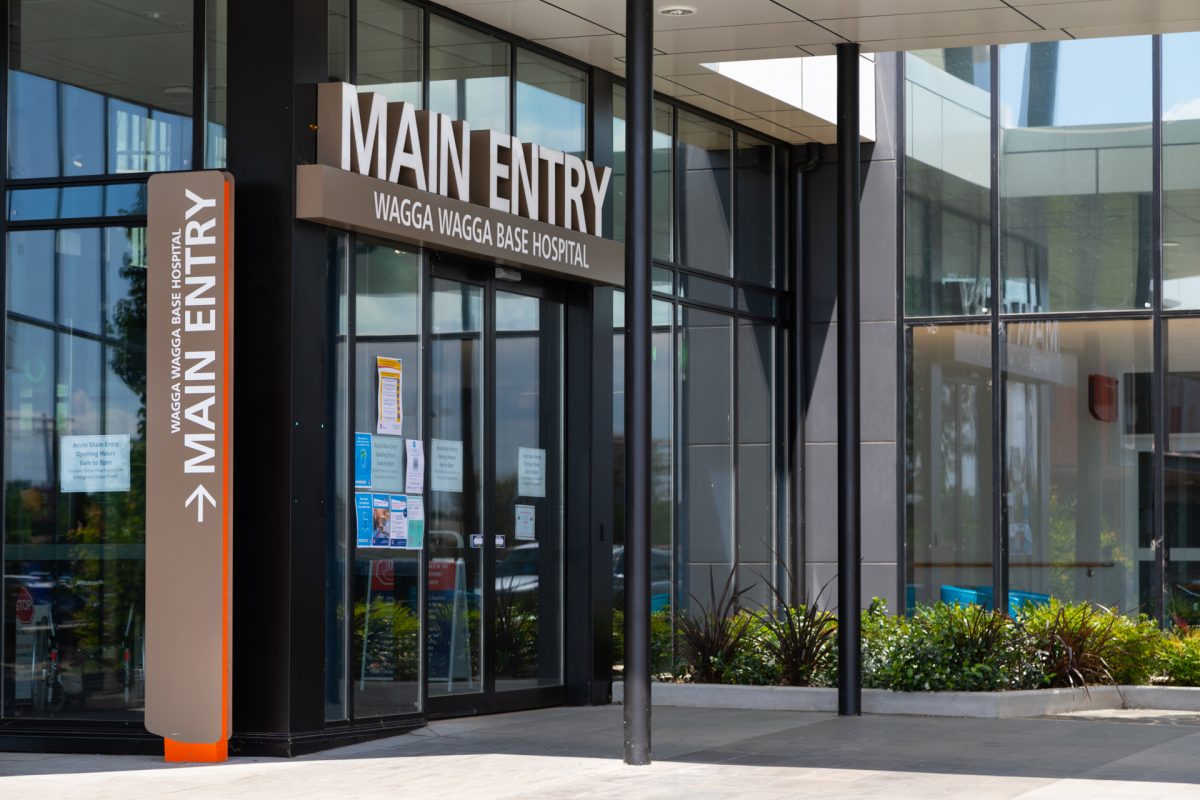
Wagga Wagga Base Hospital. Photo: Michelle Kroll.
Despite the staffing challenges plaguing NSW Health, the latest Bureau of Health Information suggests that patients have continued to receive high-quality care throughout the Murrumbidgee Local Health District (MLHD).
But according to Kirsty Wilson, Griffith Branch Secretary of the NSW Nurses and Midwives Association, this is not reflective of a healthy system.
“How the public is seeing the hospitals function at the minute is purely off the goodwill of the nurses working there,” she said.
“Nurses are picking up extra shifts and overtime to support their colleagues and keep their community safe.”
The resurgence of COVID-19 and a spike in flu cases increased the number of patients presenting to hospitals and reduced the numbers of available staff as they themselves became sick.
The Healthcare Quarterly report shows that the MLHD performed above the state average in most areas and chief executive Jill Ludford thanked staff for their hard work.
“It was a challenging start to 2022, with the peak of the Omicron outbreak impacting our communities and our workforce, and the onset of winter brought further challenges,” she said.
“Despite this, our emergency departments continued to provide care that is well above the state average in terms of emergency department wait times, and our ambulance transfer of care times are among the best in the state for this quarter,” Ms Ludford said.
“I would like to extend my sincere thanks to our highly skilled and dedicated workforce.”
While the numbers for emergency departments and ambulance times are strong when measured against state benchmarks, Ms Wilson suggests things are different behind the scenes.
Earlier this month nurses and midwives across the Riverina walked off the job for the third time this year, calling for better nurse-to-patient ratios and fair pay.
“Staffing numbers are completely inadequate,” said Ms Wilson.
“Here in Griffith we are desperately short in ED and we are continuously at capacity – always trying to move patients out to get the next one in and ambulance ramping [waiting outside the ED] is common.”
She said that staff were at breaking point.
“One nurse told me she had 50 text messages just that week to pick up an extra shift,” Ms Wilson explained.
“So that means that there were at least 50 shifts going in that week in Griffith.”
In the 2022-23 budget, the NSW Government announced a record $33 billion investment in health.
The aim is to recruit more than 10 thousand staff to hospitals and health services over four years, as part of a $4.5 billion investment.
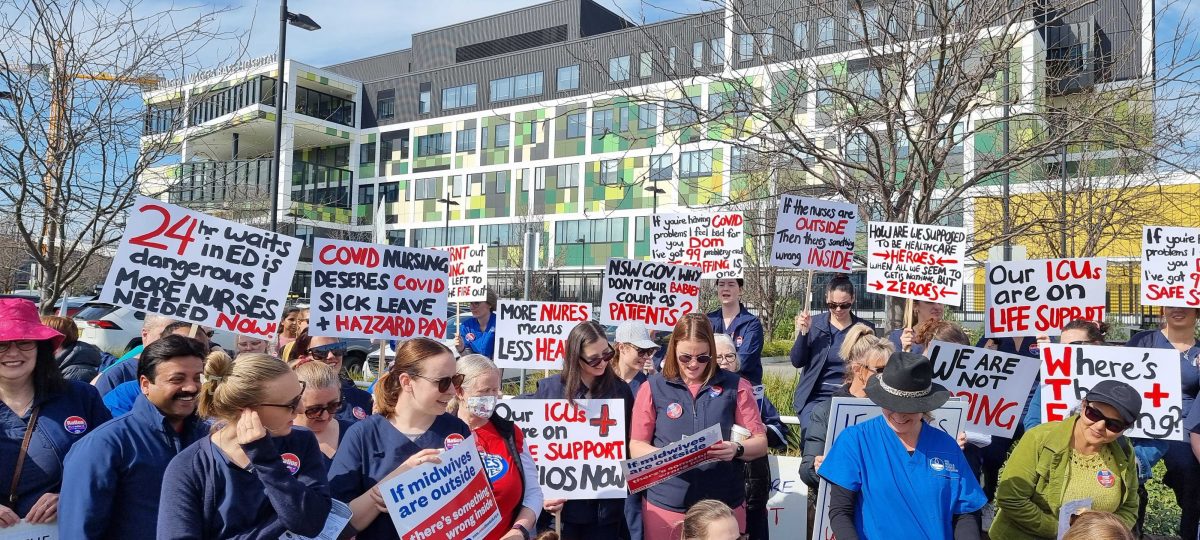
Wagga members of NSW Nurses and Midwives Association protest outside the Wagga Base Hospital for better nurse-to-patient ratios. Photo: Shri Gayathirie Rajen.
Returning to the figures, emergency departments across the LHD contended with 37,570 attendances between April and June 2022 with 81 per cent receiving treatment within the target timeframe which was well above the state average of 62.8 per cent.
While Young and Deniliquin excelled, the numbers dropped to 73.3 per cent for Griffith and 66.8 per cent for Wagga Wagga Base Hospital.
In terms of patient transfers across the LHD, ambulance paramedics remained within the 30-minute benchmark time 85.5 per cent of the time compared to the average of 72.5 per cent.
Wagga performed well in this area with 83.9 per cent, while Griffith, Young and Deniliquin Hospitals were all above 90 per cent.
73.1 per cent of patients in the MLHD were able to leave the ED within four hours of presentation, which was also better than the state average of 57.6 per cent.
Reducing elective surgery wait times remains a challenge following pauses on non-urgent procedures throughout the pandemic and the Government alocated $408 million over two years to fast-track elective surgeries across the state.
MLHD completed 1,753 elective surgeries in the quarter, with 99 per cent of urgent elective surgeries performed on time.
“Our district remains committed to performing those procedures that were delayed as soon as possible and I thank the community for their patience during this challenging time,” Ms Ludford said.
“Patients due to receive non-urgent elective surgery who have been impacted by the restrictions are encouraged to seek medical attention should they experience a change in their condition so they can be clinically reviewed and re-prioritised to a more urgent category if required.”
Finishing on a high, 329 babies were born at Wagga Wagga Base Hospital in the quarter, 116 at Griffith Base Hospital, 30 babies at Young Health Service and 22 babies were born in Deniliquin.


